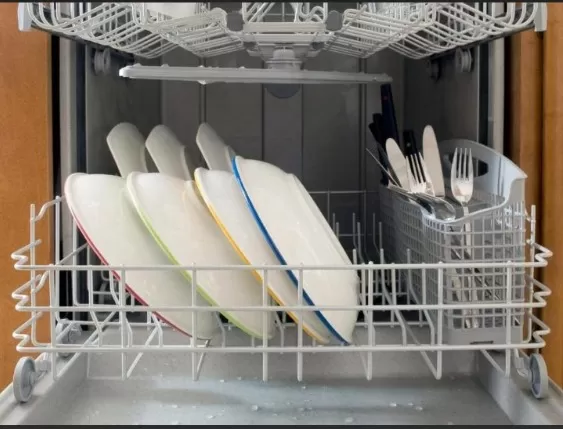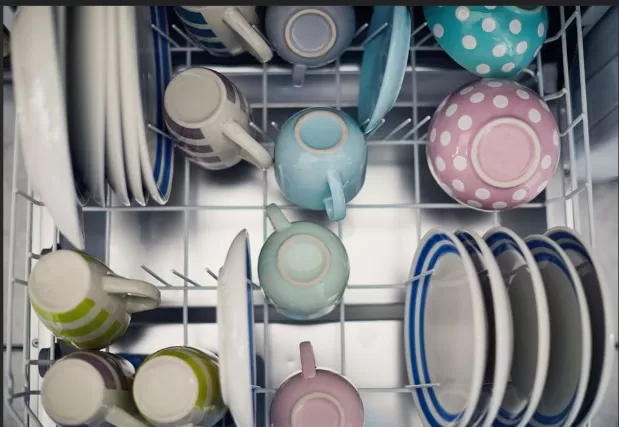Boost Dishwasher Performance: 5 Tips for Better Results. Enhancing the performance and lifespan of your dishwasher is crucial for efficient and long-lasting use. By implementing a few simple tips and practices, you can ensure that your dishwasher operates at its best.
Performance Enhancing Dishwasher: Maximize Cleaning Ability and Longevity

Modern dishwashers are designed to save time and effort, but sometimes they fall short of expectations.
Spot-covered glasses and lingering food residue on plates can be frustrating. However, there are several straightforward measures you can take to ensure your dishwasher operates at its best.
Whether you own a newer model or an older one, regular maintenance can guarantee years of reliable service and significantly enhance its cleaning ability. By identifying and addressing common issues, you can maximize the performance and lifespan of your dishwasher.
Eliminate Residue Buildup: Optimize Dishwasher Cleaning Power
To maintain optimal cleaning performance, it’s important to prevent excessive food residue from accumulating in your dishwasher.
While it may seem like common sense, be sure to scrape off leftover food from plates before loading them. However, you should not feel the need to pre-rinse dishes entirely. By striking the right balance, you can ensure efficient cleaning without wasting water on unnecessary pre-rinsing.
Maximize Cleaning Power with Hot Water

Hot water is key to achieving optimal cleaning results, so it’s important to ensure that your dishwasher receives the hottest water possible.
Start by checking the temperature of the hot water at your kitchen faucet using a meat or candy thermometer. Ideally, it should be around 120 degrees Fahrenheit.
If necessary, adjust the setting on your Water Heater to reach this temperature. Additionally, running hot water at the kitchen sink prior to starting the dishwasher will help ensure that the tub fills with truly hot water, further enhancing its cleaning capabilities.
Banish Hard Water Woes: Preserve the Pristine Look of Your Dishes
The presence of hard water can lead to unsightly residue and spots on your glasses and plates.
If you notice these issues, it’s worth checking if your water is indeed hard. You can easily test this using an inexpensive kit available at local home centers. If the test confirms hard water, consider installing a water softener to combat stains and prevent mineral buildup. This simple solution will help preserve the pristine appearance of your dishes and ensure they come out sparkling clean after each wash.
Achieve Optimal Cleaning: Load Your Dishwasher with Precision

To achieve the best cleaning results from your dishwasher, it is crucial to follow the manufacturer’s guidelines for loading the appliance. Crowding or overloading the dishwasher can hinder water circulation and impact the effectiveness of the cleaning process. By adopting proper loading techniques, you can optimize the cleaning performance and ensure spotless dishes. Here’s what you need to know:
- Follow Manufacturer’s Guidelines: Each dishwasher model may have specific loading instructions provided by the manufacturer. Refer to the user manual or guidelines to understand the recommended loading techniques for your dishwasher.
- Avoid Overcrowding: Resist the temptation to overcrowd the dishwasher. Leave sufficient space between dishes, utensils, and glassware to allow water to reach all surfaces effectively. Overloading can obstruct the spray arm’s rotation and prevent adequate water flow, resulting in poorly cleaned items.
- Maintain a Balanced Load: Distribute the dishes evenly throughout the dishwasher, paying attention to the weight and size of items. Place larger and more durable items, such as pots and pans, on the lower rack, while delicate glassware and smaller items should go on the upper rack. This balance helps ensure proper water circulation and cleaning performance.
- Provide Ample Space: Allow for ample space between dishes, particularly between plates and bowls, to allow water and detergent to reach every nook and cranny. Avoid nesting or stacking items too closely together, as this can create barriers that inhibit thorough cleaning.
- Pre-rinse When Necessary: While modern dishwashers are designed to handle most food residues, heavily soiled dishes may require pre-rinsing. However, be mindful not to pre-rinse excessively, as it can waste water and interfere with the dishwasher’s sensors, affecting its cleaning cycles.
By adhering to these loading guidelines, you can ensure optimal cleaning performance from your dishwasher. By maintaining a balanced load, providing ample space, and following the manufacturer’s recommendations, you’ll enjoy sparkling and spotless dishes with every wash.
*The information is for reference only.